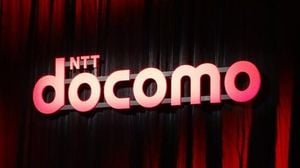In a curious twist in the world of tax law, OnlyFans content creators are now capitalizing on a loophole that allows them to claim breast enhancement surgeries as legitimate business expenses. This situation is spurring debate regarding the boundaries of tax breaks and what constitutes an allowable expense in the digital age, particularly for those involved in sex work, a sector that's not only controversial but also lucrative.
The inception of this conversation began when an unnamed OnlyFans creator successfully claimed tax relief for her breast augmentation surgery. This landmark case was reported extensively and highlighted by publications such as The Mail on Sunday, which described it as "the first known case of its kind." Such claims are contingent upon demonstrating that the surgery was essential for their professional activities, under the guidelines from HM Revenue and Customs (HMRC). Essentially, if a creator can prove that having an enhanced appearance improves their income, they may be eligible for such deductions.
Rachel Martin, a chartered accountant who filed the claim, found herself unexpectedly in the spotlight following the news. While her practice serves a diverse clientele, the novelty of this case has drawn considerable media attention. Martin stated she was surprised to see the story catch fire, noting that her client was not solely tied to adult content but that it was an essential factor influencing her income on OnlyFans.
OnlyFans has become a notable platform in recent years, particularly known for its adult content. However, it's important to recognize that it also serves various types of creators—such as fitness trainers, artists, and chefs—who share content in exchange for subscription fees. Many of these users have leveraged their appearance to gain a financial edge on the platform.
One prominently cited creator is Rebecca Goodwin, who reported earnings skyrocketing from $12,000 a month to an astonishing $34,000 following her breast surgery in 2020. Goodwin's testimony underscores the pressures many feel in the marketplace. “I wouldn't have had a boob job if it wasn't for doing this,” she expressed, speaking candidly about how societal beauty standards can significantly affect a creator's success.
The implications of these tax claims extend beyond merely the creators themselves and challenge the norms around tax codes designed in previous eras, often without consideration for modern digital economies. A spokesperson for HMRC has articulated that while guidance exists, they do not give assurances for specific cases regarding what can be classified as an allowable expense.
The dialogue surrounding such claims has grown to include voices advocating for clearer guidelines from HMRC regarding cosmetic procedures. Conservative MP Alexander Stafford was particularly vocal in suggesting that the loophole merits immediate review, emphasizing that the general taxpayer would likely not look favorably upon such deductions being used to fund elective cosmetic surgeries.
While some financial experts argue that successful claims in this domain create an unfair burden on the fiscal system, supporters suggest that, similar to other professions, those whose appearance directly influences their income should be entitled to write off expenses that enhance their professional viability.
Moreover, the case has sparked comparisons to other professions where personal appearance can impact economic prospects. Just a few decades ago, a radio presenter received similar allowances for dental work, leading to broader implications about what additional bodily alterations—beyond traditional health measures—could be deemed deductible under the evolving tax landscape.
Interestingly, the controversy delves deeper into the moral and ethical questions surrounding adult work. Many involved in the OnlyFans community do not consider their decision to invest in cosmetic procedures as merely business-oriented; rather, they discuss the personal satisfaction and the empowerment such modifications can bring. Goodwin highlighted the significant life changes that have come with her decision to enter the sex work sphere, including the ability to provide stable housing in her local community.
As discussions continue, it’s clear that the conversation around OnlyFans and cosmetic surgery tax claims touches on fundamental questions regarding societal expectations, economic pressures, and the blurred lines of professional and personal identities in the rapidly evolving gig economy.
The sheer revenue potential of platforms like OnlyFans—where some users can make substantial amounts per month—further complicates matters. Figures suggest that some models can earn millions dollars annually, igniting debates about personal responsibility that resonate beyond mere tax relief. Discourse surrounding these events suggests a growing recognition of the nuanced realities these content creators face.
As the tax landscape grows increasingly complex with the rise of digital economy examples, it becomes apparent that what may begin as a singular case can unfold into a broader legislative dialogue, challenging current norms, prompting fiscal scrutiny, and encouraging modern taxation guidelines that better reflect today’s realities.
The notion that elective surgery might fall within professional costs is not wholly unprecedented; various performers—from actors to reality television stars—have engaged in similar claims, revealing long-standing issues regarding gender, sexuality, and financial empowerment. Nevertheless, the focus on OnlyFans disrupts traditional narratives surrounding labor and identity.
In conclusion, the discussions surrounding OnlyFans content creators and cosmetic surgery deductions demonstrate an evolving tax narrative that requires ongoing scrutiny. As this dialogue progresses, it raises critical queries about how society perceives professionals in the adult entertainment industry and what regulations might be necessary to ensure fair and responsible practices moving forward.



